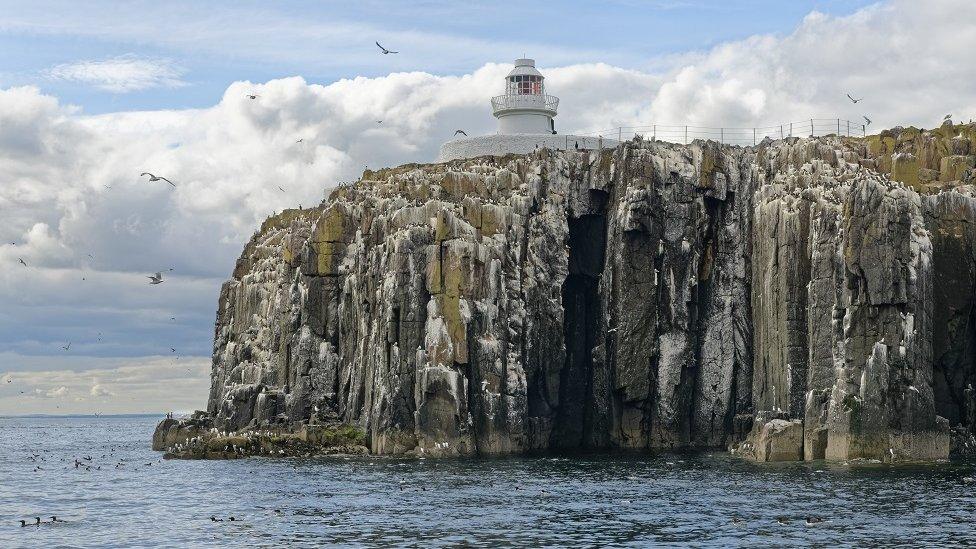Farne Islands: Plea for action after 3,500 seabirds die of bird flu
- Published
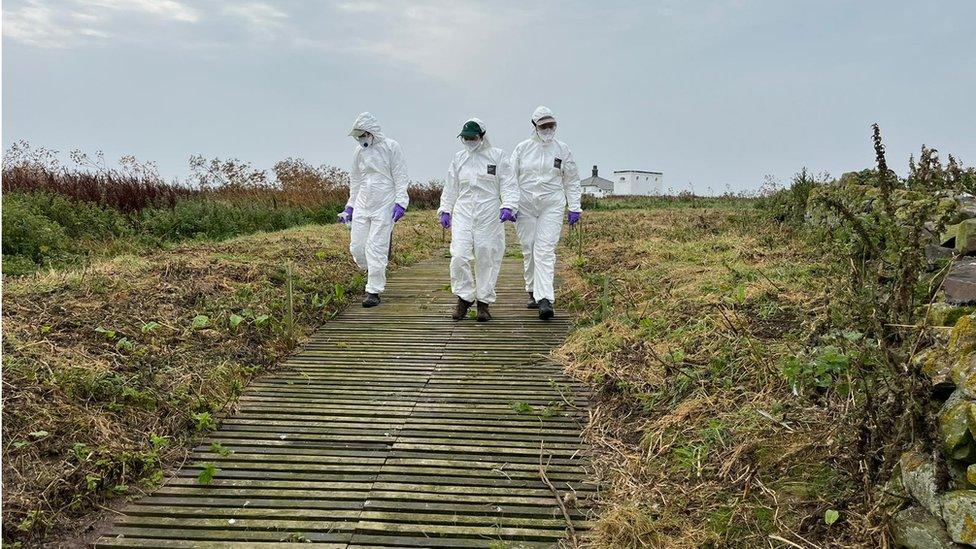
Bird flu has stopped members of the public from landing on the Farnes for two seasons
Ministers have been urged by the National Trust to take urgent action on bird flu after more than 3,500 dead birds were found on the Farne Islands.
The Northumberland islands - home to puffins, guillemots, razorbills and Arctic, sandwich and common terns - will stay shut for the season.
It is hoped the action will help returning breeding birds next year.
The government said it would publish its plan on how to protect seabirds against bird flu later this year.
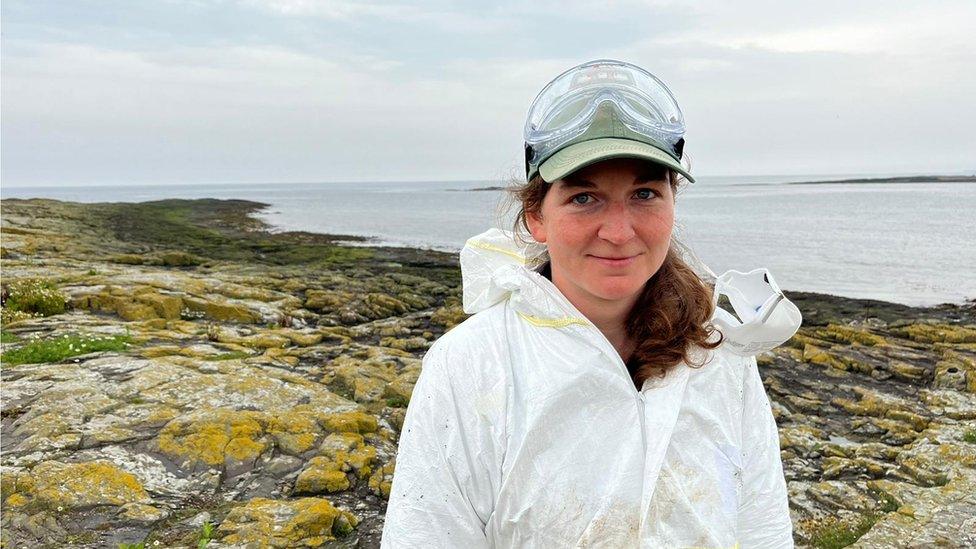
Harriet Reid said the loss of seabirds on the Farnes was "significant and worrying"
Harriet Reid, the National Trust's area ranger for the Farnes, said the conservation charity was doing all it could to stop the spread of avian flu.
Last year, more than 6,000 birds died on the Farne Islands.
This year the figure is just more than half that, but different species like large gulls were hit harder.
Ms Reid said: "For a species like the terns there are fewer of them to begin with anyway, so their loss this year is significant and is worrying.
"Any loss is bad, but when you compare them to species like guillemots where we have thousands and thousands on the cliffs, it's a bit different because there were more of them to begin with."
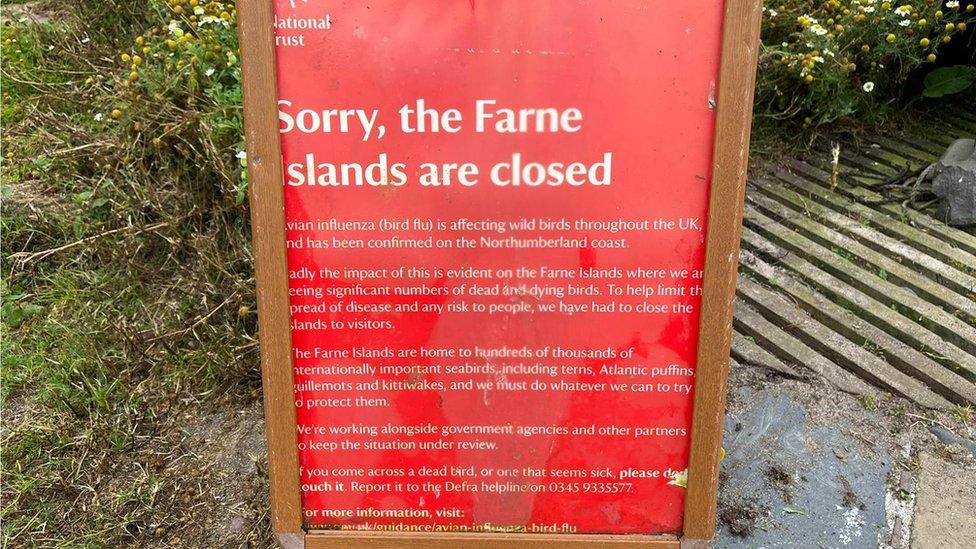
The National Trust has closed the Farne Islands to landing visitors although boat tours continue
Inner Farne is a globally significant breeding site for the National Trust and at this time of year, would normally have up to 500 visitors a day.
But bird flu has stopped members of the public from landing on the Farnes for two seasons.
Latest figures from the conservation charity show bird flu is spreading across its seabird colonies.
This year, five sites have been affected.
At neighbouring Long Nanny, hundreds of Arctic terns have also died, along with 40% of their chicks.
At Cemlyn in North Wales, more than half of the common terns have been lost.
There have also been fatalities in South Wales, Dorset and in Northern Ireland.
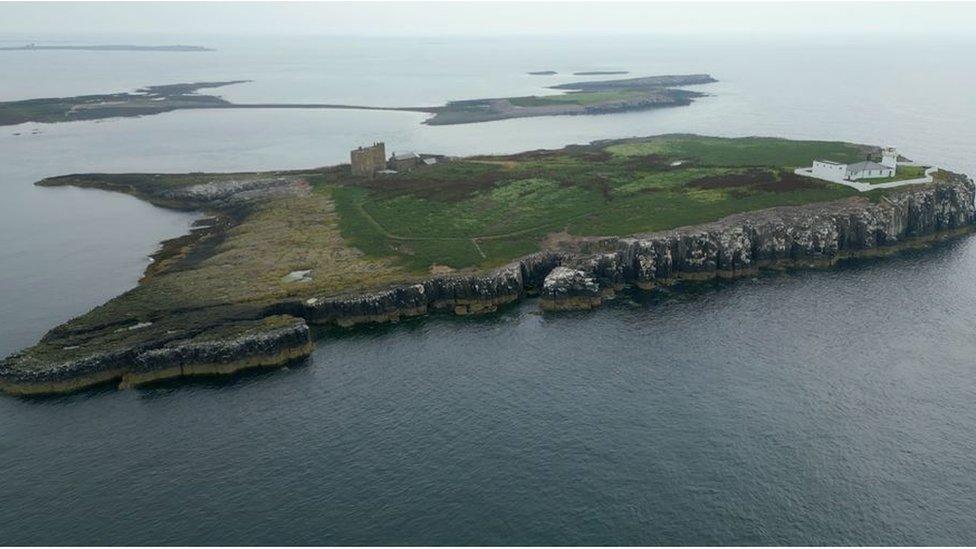
Inner Farne is a globally significant breeding site for seabirds
The National Trust said the government had been concentrating on how to protect poultry and only recently started focussing on the impact on wild birds.
Ben McCarthy, head of conservation and restoration ecology, said: "We're asking for urgent action from the government to help support greater collaboration between themselves, research scientists as well as conservation organisations like the National Trust, so we can combine our efforts and build an evidence base."
The Department for Environment Food and Rural Affairs (Defra) said it shared concerns about the impact on seabirds and aimed to publish its plan on how to deal with them later this year.
It said it was also working with advisors to assess the wild bird population in Wales.
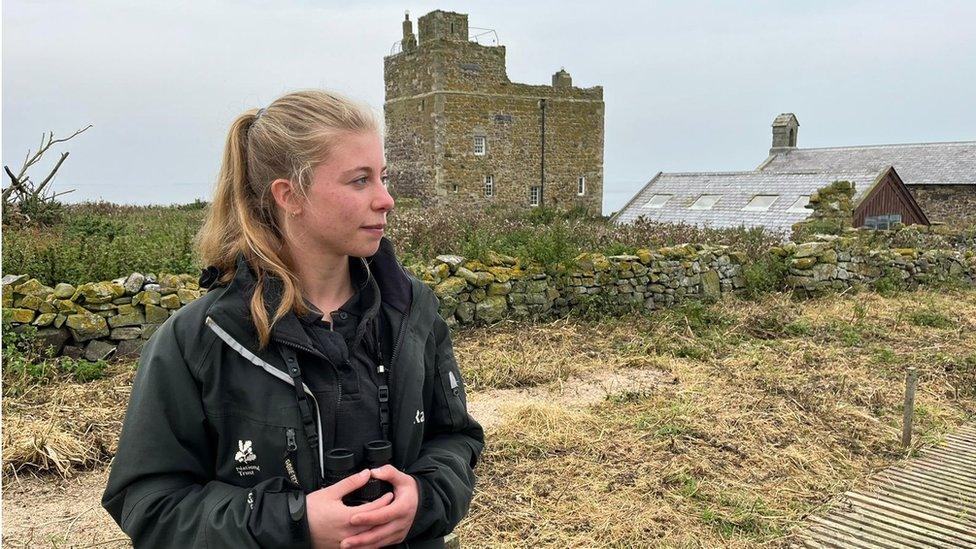
Ranger Rosie Parsons said it had been hard watching bird flu affect the breeding birds
Ranger Rosie Parson said the harsh reality of the disease had made the job harder.
"I walked past one of my Arctic tern nests. The chick was so close to fledging, and it had obviously just died. I was doing my daily check and the adult was kind of just sat there thinking, 'what do I do now?' It was kind of gut wrenching," she said.
She added current work being carried out by rangers would give birds returning next year "a fighting chance".
"I have great faith that the bird species will pull through" Ms Reid said.
"Many of them are a very hardy species and its important for us to help them get past bird flu and get back to some kind of normality."
Bird flu was also confirmed on nearby Coquet Island in June, with black-headed gulls, common terns and rare roseate terns being worst hit.
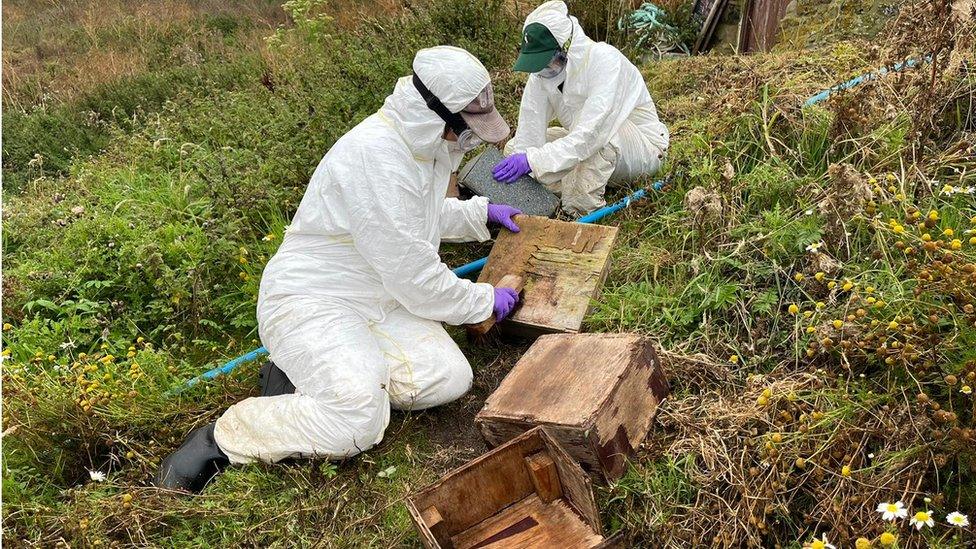
Rangers on Inner Farne are working hard to give - what they say - the seabirds a fighting chance for when they return next year

Follow BBC North East & Cumbria on Twitter, external, Facebook, external and Instagram, external. Send your story ideas to northeastandcumbria@bbc.co.uk, external.
Related topics
- Published10 July 2023
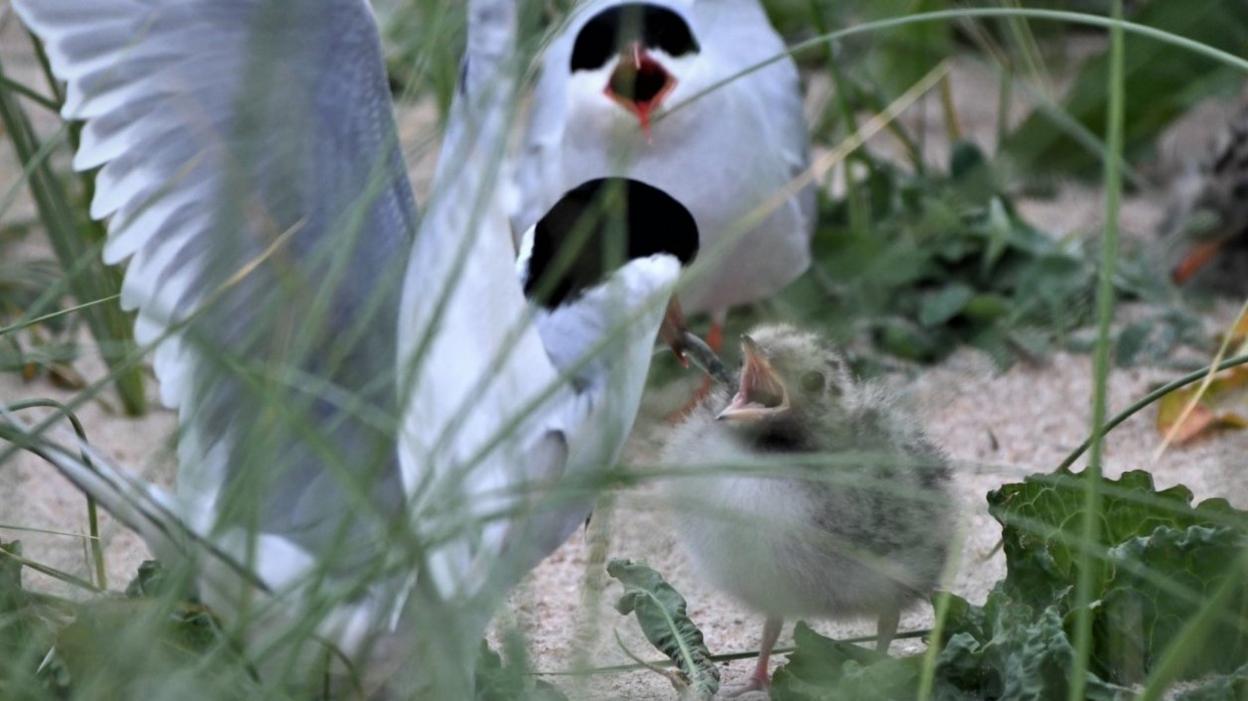
- Published25 April 2023
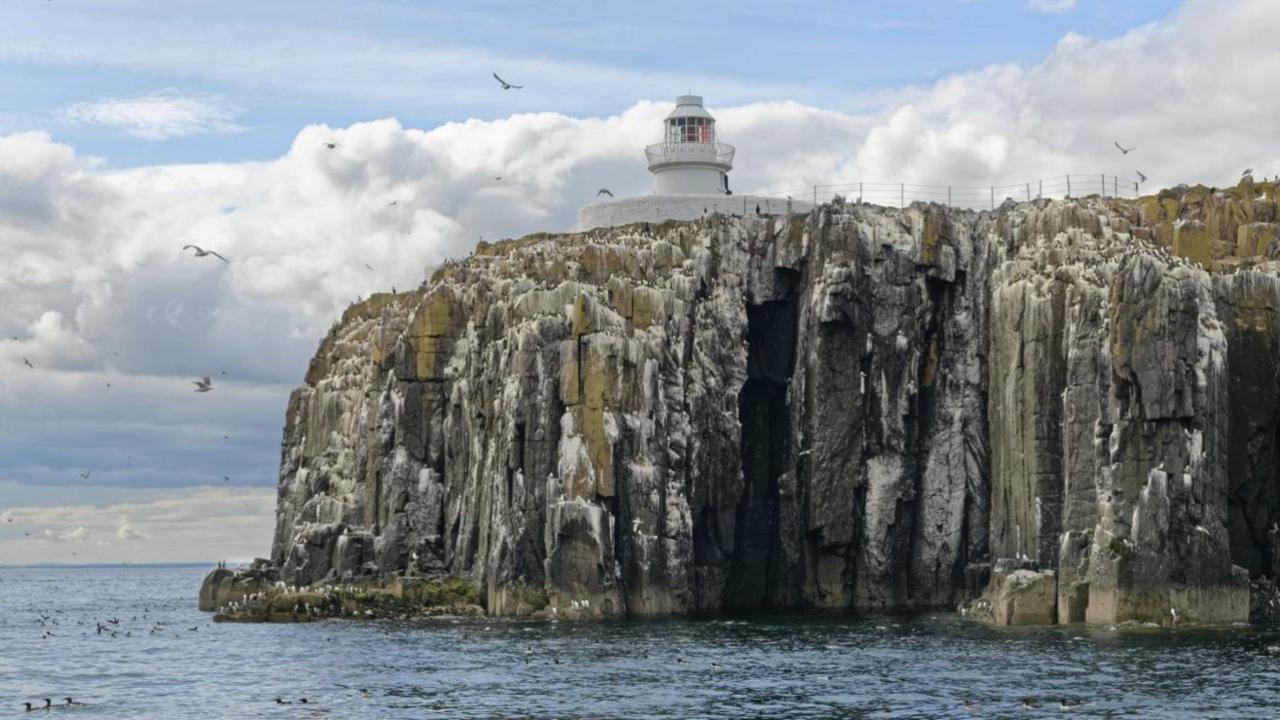
- Published23 February 2023
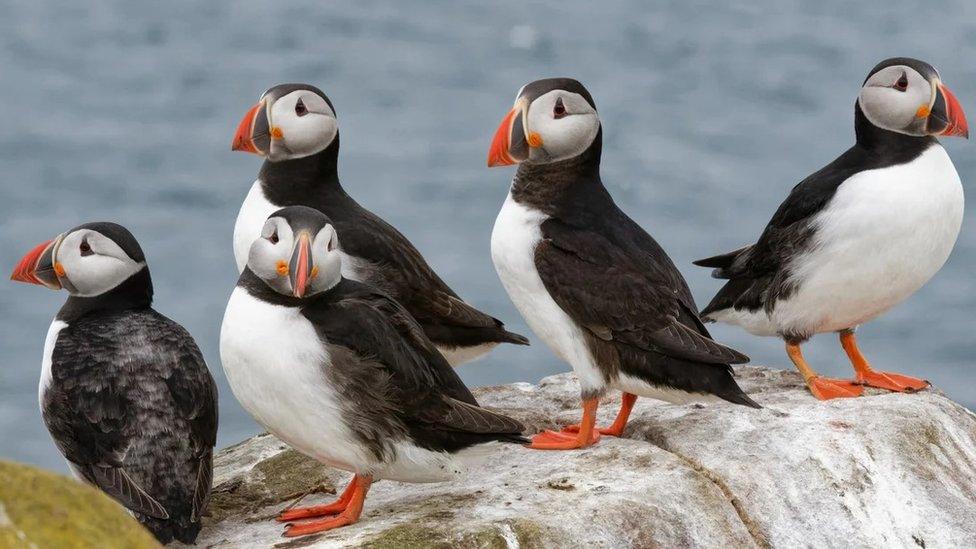
- Published18 August 2022
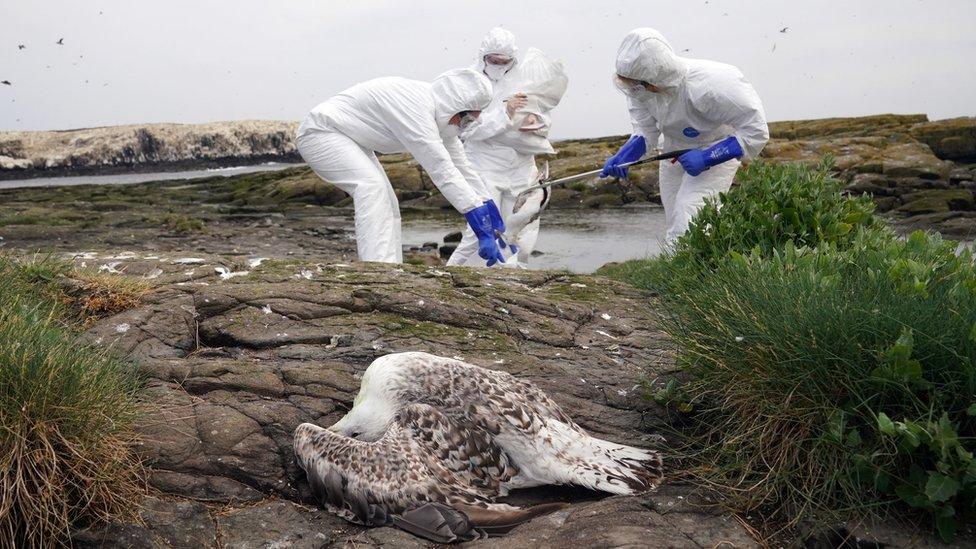
- Published25 July 2022
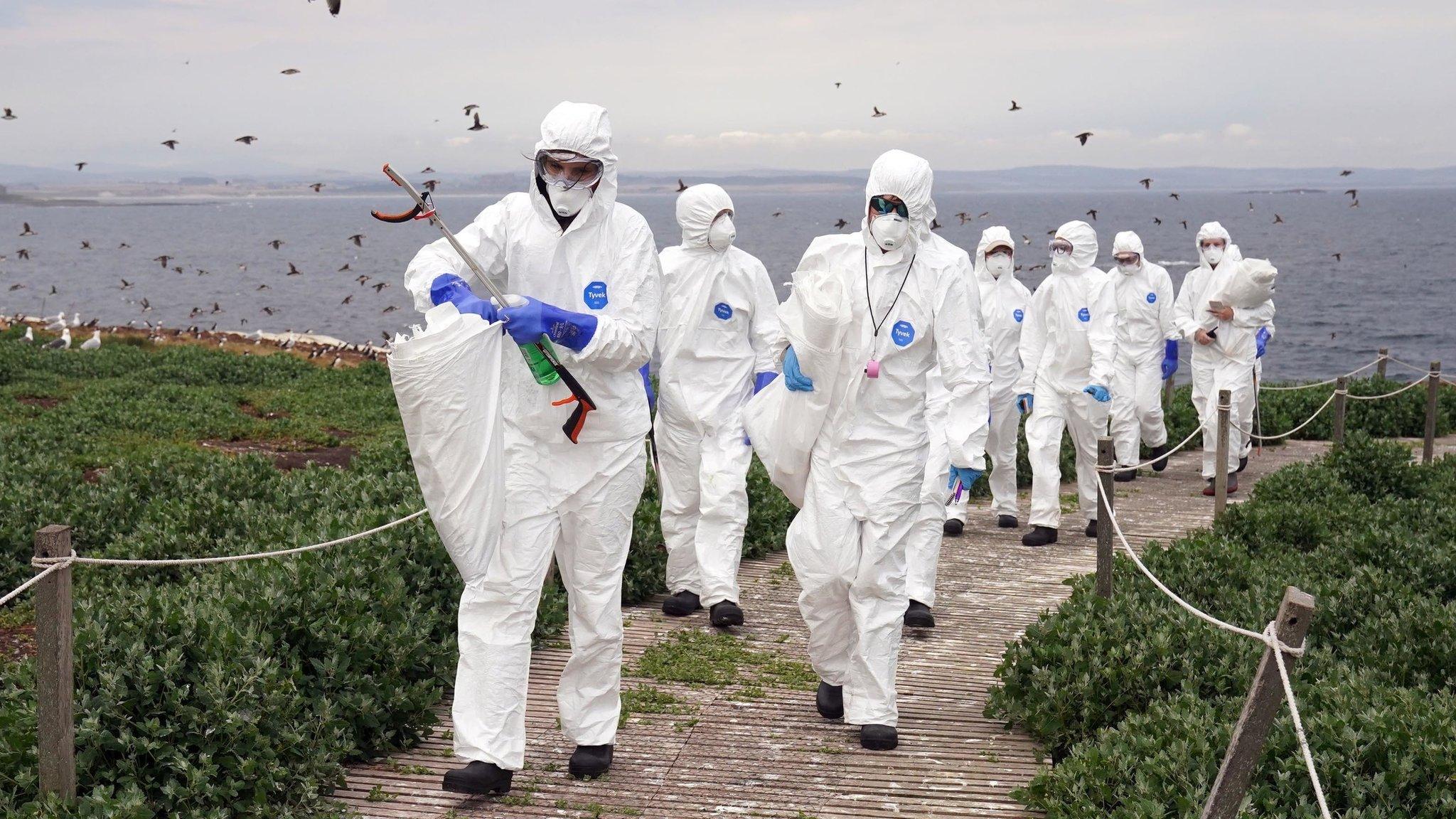
- Published1 July 2022
